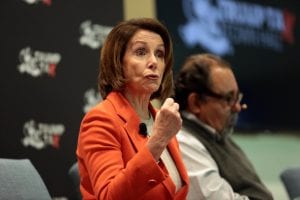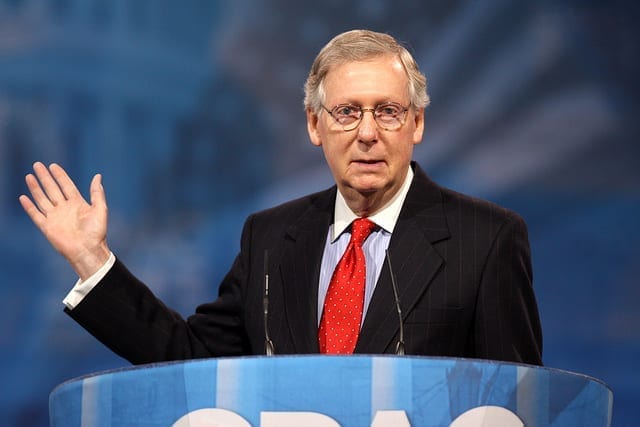Senate Majority Leader Mitch McConnell said any stimulus package will have to offer businesses broad immunity from coronavirus-related litigation.
The U.S. Senate is expected to begin negotiations on another coronavirus stimulus next week.
According to Reuters, Senate Majority Leader Mitch McConnell, a Kentucky Republican, expects a round of tough negotiations. While his Democratic colleagues are pushing for a second wave of stimulus checks as well as a continuation of enhanced unemployment benefits, Sen. McConnell has prioritized corporate relief.
Among McConnell’s primary objectives is ensuring that businesses, schools, and other institutions are provided blanket immunity from coronavirus-related litigation.
Immunity is purportedly important enough to McConnell that he is willing to draw a line in the sand, potentially sabotaging another stimulus package if it is not included in the package. FacingSouth.com reports that McConnell hopes to provide businesses with “immunity from COVID-19 related lawsuits for the next five years.”
“Unless you’re being grossly negligent or intentionally engaged in harmful behavior,” McConnell said, “you shouldn’t have to be penalized by getting sued on top of everything else.”
McConnell’s willingness to provide immunity to an assortment of entities has Democrats worried; liberal legislators have speculated that the provision, if passed, would essentially be a blank check for gross misconduct.
“Why does Senator McConnell think that major corporations should be exempt from liability when they force their workers to come back and they get sick?” Senate Minority Leader Chuck Schumer (D-NY) asked.

Similarly, Remington Gregg—counsel for civil justice and consumer rights at Public Citizen—told Common Dreams that McConnell, backed by the U.S. Chamber of Commerce, is preparing for a worst-case scenario that has yet to materialize.
“As we grapple with the biggest public health crisis of our lifetime, the Chamber is using a pandemic as cover to get a priority wish-list for its members: five years of immunity from tort liability,” Gregg said.
“While both the Chamber and U.S. Senate Majority Leader argue that immunizing businesses during a pandemic is the only way to stop a flood of litigation, the evidence shows that there is no flood,” he added.
In a publicly-issued brief, Public Citizen noted that the Chamber of Commerce has repeatedly attempted to fear-monger amidst anticipated crises, often with the intent of winning its members immunity from litigation. In 1999, for instance, the Chamber requested tort immunity in preparation for Y2K—a technological disaster that never happened.
“Like Chicken Little crying ‘the sky is falling,’ the Chamber over the years has repeatedly attempted to scare lawmakers, media, and the public,” Public Citizen said. “Now, yet again, the Chamber is warning of a new flood, as it tries to take advantage of the coronavirus pandemic to undermine state-law protections that provide accountability and potential compensation to people injured by others’ negligence.”
The brief further notes that the vast majority of coronavirus-related lawsuits filed against businesses have had more to do with obtaining refunds for canceled events and services than punishing an entity for negligence or unintended infections.
House Majority Leader Nancy Pelosi (D-CA) has also questioned the wisdom of tort immunity amidst the pandemic, suggesting that it will incentivize businesses to recall workers to unsafe conditions.
“Let’s hear what everybody has to say,” Pelosi said of next week’s negotiations. “But don’t say, ‘You all have to go back to work even if it isn’t safe. And by the way, we are removing all responsibility from the employer.’
“I mean, that is just no,” Pelosi said.
Sources
The push to block lawsuits by workers and consumers infected with COVID-19
Senate GOP Aims to Funnel Covid Liability Cases to Federal Courts
U.S. Senate to begin debate on new coronavirus bill next week: McConnell


Join the conversation!